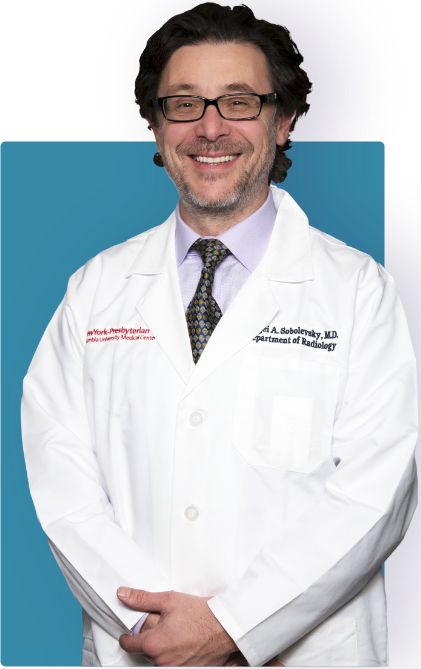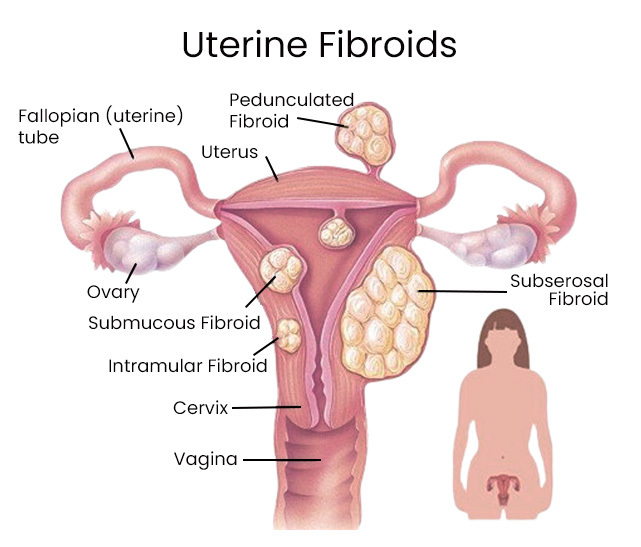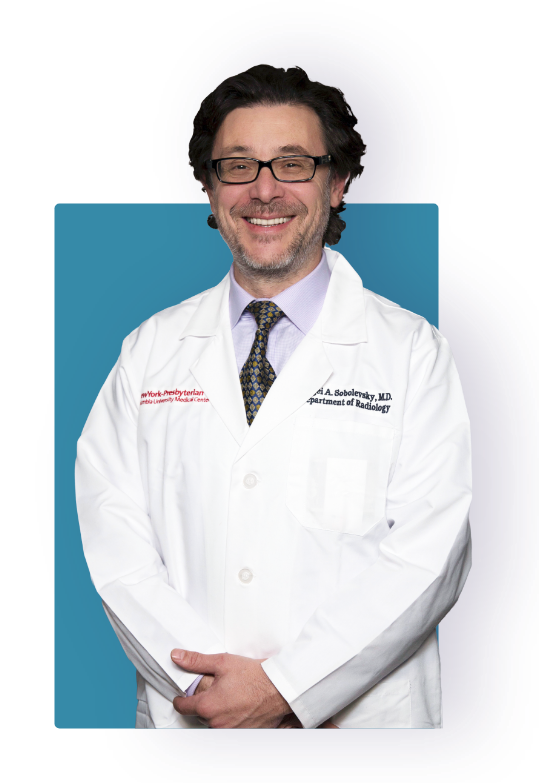When you have pelvic pain or unexplained or heavy menstrual bleeding at any time during the month, there’s a chance you have uterine fibroids or adenomyosis. The best treatment for fibroids and adenomyosis, to help with uterine bleeding and pelvic pain, is a uterine artery or fibroid embolization. Make an appointment with Dr. Sobolevsky at the Downtown Vein & Vascular Center. Call today to find out if you have uterine fibroids and what options you have for the best treatment for fibroids.
What Are Fibroids?
 Fibroids are non-cancerous tumors that form within the walls of your uterus. These tumors are usually driven by estrogen, a hormone that also stimulates the re-growth of the endometrial lining.
Fibroids are non-cancerous tumors that form within the walls of your uterus. These tumors are usually driven by estrogen, a hormone that also stimulates the re-growth of the endometrial lining.
Left undiagnosed and untreated, fibroids can cause an array of issues, including:
- Uterine bleeding
- Abnormal pelvic cramping
- An enlarged uterus
- Pelvic pain, pain with intercourse and general daily discomfort
- Infertility
Fibroid bleeding can be excessive, as well as increasingly annoying and painful. Fibroids occur most commonly in women between the ages of 35 and 50, and they’re especially prevalent in African American women.
Choose a fibroids specialist, especially if you’re planning on getting pregnant in the future or believe you’re pregnant now. Rely on an experienced fibroids doctor at the Downtown Vein & Vascular Center. The specialty clinic in Brooklyn, NY has more than one option available for fibroid treatments. The sooner you seek fibroids treatment, the better chance you have of reducing risks of further complications.
“Uterine fibroids are very common, affecting about 80% of women by the time they reach menopause. Most women with fibroids don’t have any symptoms, but for those who do, the symptoms can range from mild to severe.” – Dr. Mary Jane Minkin, Clinical Professor of Obstetrics and Gynecology at Yale University School of Medicine

You can end your search for a “fibroid doctor near me” by simply scheduling an appointment with Dr. Sobolevsky at the Downtown Vein & Vascular Centre. With years of experience in endovascular medicine, he will provide you with an effective and long-lasting solution for your specific case
What Are the Symptoms of Fibroids?
Some women experience insignificant or no symptoms at all with the development of fibroids. In others, fibroids may cause pain and sharp cramps in your lower abdomen and back. Various conditions and their severity also depend on how long you wait to get uterine fibroids treatment.
Fibroids range in size from tiny, approximately one millimeter, to 20 centimeters in size or greater. Sometimes, multiple fibroids form a cluster and turn into bulky masses that cause the uterus to expand.
Symptoms may differ in severity, but generally include:
- Heavy menstrual flow. Your period is heavy with abnormally large amounts of blood flow. It can last for seven days or longer as well.
- Bladder problems. Some women experience difficulty emptying their bladder or feel pain when urinating when fibroids are present in the uterus. Because of the pressure on the bladder, others report frequent urination.
- Fibroids weight gain. Growing fibroids increase in size and weight and sometimes lead to significant rapid weight gain. Bloating also contributes to excess weight.
- Pelvic pain. Severe cramping and pressure in the pelvis, lower back and legs may be present if fibroids have inflamed the uterus, which also often causes pain during sex
“Fibroids can cause a variety of symptoms, including heavy menstrual bleeding, pelvic pain, pressure, and constipation. They can also make it difficult to get pregnant or carry a pregnancy to term.” – Dr. Lauren Streicher, Professor of Obstetrics and Gynecology at Northwestern University Feinberg School of Medicine
Fibroid Doctor Near Me: Find Relief From Fibroids at Downtown Vein & Vascular Center
When looking for effective ways of addressing uncomfortable menstrual cramping, pains, and heavy periods that often come with uterine fibroids, choose the best fibroid specialist with experience in vascular and interventional radiology specializing in the diagnosis and treatment of fibroids and adenomyosis. Locate the best fibroid doctor offering minimally invasive treatment for uterine fibroids, pelvic pain, and vein-related diseases using uterine artery embolization, also known as uterine fibroid embolization, with no pain and minimal downtime.
How To Find a Doctor Offering Uterine Fibroid Treatment Near Me
To find a fibroid doctor near you, you can follow these steps:
- Consult your healthcare provider, friends, and family for recommendations.
- Search online for “fibroid doctor near me,” “uterine fibroid specialist near me,” or “fibroid treatment near me.”
- Read online reviews of nearby fibroid doctors. This can provide you with a sense of each physician’s qualifications, skills, and bedside manner.
Once you’ve found a number of providers, give each doctor a call to find out more about their education, background, and approach to care. You can also ask about their insurance coverage and fees.
Our Patients Talk About
Their Fibroids Treatment Experience
What Happens if Fibroids Go Untreated?
Fibroids that do not cause any symptoms do not need to be treated. But if you’re having fibroid symptoms, chances are that the fibroids will continue to grow, creating worsening symptoms. Bleeding gets heavier, cramps become more severe, and swelling in your abdomen becomes more pronounced.
By letting fibroids go untreated, you may experience:
- Loss of urinary control and more frequent urination
- Heavier periods that keep you immobilized
- Disrupted intimacy due to pain during sex
- Inability to get pregnant
What’s the Best Treatment for Fibroids?
Fibroids treatment varies. If you may decide to wait and see before seeking treatment from a fibroid doctor, the pain and discomfort may start affecting your daily life. If you don’t want to risk serious consequences, you need uterine fibroids treatment from the best fibroids doctor in New York City.
Left untreated, fibroids often increase in size and number, leading to more pain and heavier bleeding. Untreated adenomyosis also leads to the same worsening symptoms.
The most common, effective treatments include:
- Uterine fibroid embolization. This often recommended procedure is minimally invasive and preferable for removing fibroids while pregnancy is still an option for you. It involves blocking blood flow to the tumors, allowing them to shrink naturally. There are minor risks and significant benefits with a minimal recovery time.
- Myomectomy or hysterectomy. A myomectomy is a surgical procedure designed to remove just the fibroids, leaving the uterus intact, whereas a hysterectomy is performed when you want to remove your entire uterus. A hysterectomy is a drastic measure, but the only one that ensures you never have uterine fibroids again.
Embolization is the best way to get rid of fibroids and adenomyosis. When seeking a fibroids specialist in the greater Brooklyn area, contact the Downtown Vein & Vascular Center. Get advice from an expert for the best fibroids treatment that fits with your lifestyle and your health needs. Dr. Sobolevsky serves Brooklyn and all of New York City from his state-of-the-art facility.
FAQ
How do I find the best fibroid doctor near me?
Your primary care physician is a good resource for recommendations. In general, look for specialists who have a great deal of experience treating uterine fibroids. Check for board certifications , patient reviews, and hospital affiliations.
What should I expect during my first visit to a fibroid specialist?
The physician will perform a physical examination, go over your medical history, and occasionally prescribe imaging tests. Based on the results, they will talk about your symptoms and possible treatments.
Can a fibroid specialist perform minimally invasive surgery?
Yes, many are trained in laparoscopic or robotic-assisted myomectomy, offering quicker recovery times and less postoperative pain compared to open surgery.
How do fibroid specialists determine the best treatment plan?
They consider the size, number, and location of fibroids, symptom severity, age, and fertility desires. The treatment is tailored to your specific needs.
Are there non-surgical treatments available from fibroid specialists?
Yes, options include medication, uterine artery embolization (UAE), and MRI-guided focused ultrasound (MRgFUS).
What questions should I ask a fibroid specialist during my consultation?
Learn about their background, available treatments, pros and cons, and anticipated time of healing. Find out how successful the treatments they recommend are.
Is follow-up care necessary after fibroid treatment?
Yes, to monitor recovery and ensure treatment success. Follow-up visits check for recurrence and address ongoing symptoms.

I am Dr. Sergei Sobolevsky, a leading specialist in endovascular medicine. Having performed over 25,000 procedures throughout my career, I bring decades of experience in vascular and interventional radiology to my practice. I obtained my Doctor of Medicine (MD) degree from the University of Colorado School of Medicine in 1997 and completed my specialty clinical training in vascular and interventional radiology at Harvard University.
My dedication to excellence in patient care has been recognized through accolades such as being named a Castle Connolly Top Doctor and inclusion in the Top Doctors New York Metro Area lists for 2020, 2021, 2022, and 2023. With licenses in multiple states, I have also shared my expertise through presentations at various institutions in the US and abroad.
More About Dr. SobolevskyDowntown Vein Treatment Center
480 Court Street, Ste 101
Brooklyn, NY 11231
(718) 787-5559


